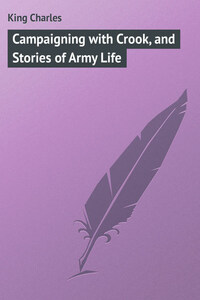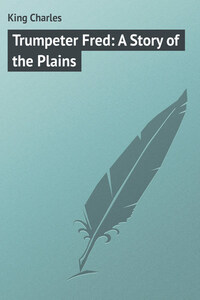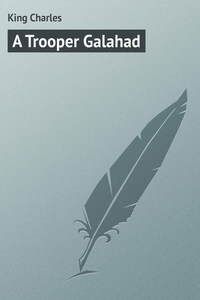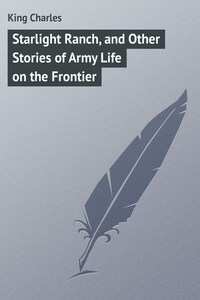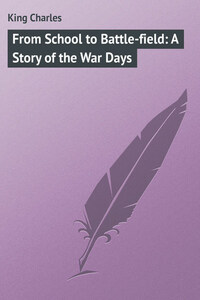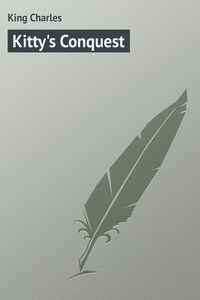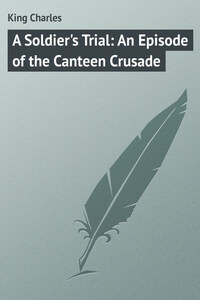Ten years ago, at the request of the editor of a paper at my old home, these sketches of the Sioux Campaign of 1876 were written and, finding favor with comrades to whom a few were sent, were published in pamphlet form. Now, reinforced by certain other sketches which have since appeared, they are given a new framework.
They were the first-fruits, so to speak, of a pen that has since been seldom idle. They were rough sketches, to be sure, but no rougher than the campaign; and in the early days of a divorce from associations that were very dear, and of a return to surroundings once familiar, yet, after twenty years of absence, so changed that a cat in a strange garret could hardly have felt less at home, I laid their faint tribute of respect and honor at the feet of the soldier who had been our commander in the wild days in Arizona, our leader from the Platte to the Yellowstone and our comrade in every hardship and privation – Brigadier-General George Crook, United States Army.
Only enough of these pamphlets were printed to reach the few hundred comrades who rode the grim circuit of "The Bad Lands" in that eventful centennial year. The little edition was long ago exhausted. The years that followed only served to strengthen the ties that bound me to the revered commander of old cavalry days. Many a name recorded in these pages no longer graces our muster-rolls. Mason, our soldier major, gallant Emmet Crawford, brave old Munson, daring Philo Clark; Rodgers and Price, Egan and Dewees, Bache and Hunter, have been called from the ranks in which they won such honor, and, only a few short months ago, the leader whom they so faithfully served rejoined them on the farther shore of the dark and silent river. The mountains and prairies over which we marched and fought know no longer the war-cry of painted savage or the din of thrilling combat. Herds of browsing cattle crowd the lovely valleys through which we drove the buffalo. Peaceful homes and smiling villages dot the broad Northwest where hardly a roof-tree was in place when Crook essayed the task of subjugating the foeman to settlement and civilization. Another star had been added to the one awarded him for the campaign which left the fierce Apaches conquered and disarmed. The highest grade in the army had been attained when, all too soon, he was summoned to answer to his name, "beyond the veil."
Better pens than mine shall tell our people of his long years of brave and faithful service in which this campaign of '76 – so pregnant with interest to us who rode the trail, and with result to a waiting nation – was, after all, only an episode; but, just as in honor and in loyalty, these faint pictures of the stirring scenes through which he led us were inscribed to him at their birth, so now, with added honor and in affectionate remembrance tenfold increased, is that humble tribute renewed.
Charles King,
CHAPTER I.
FORT HAYS AND THE START
The disastrous battle on the Little Horn, which resulted in the annihilation of General Custer and his five favorite companies of the Seventh Cavalry, occurred on the 25th of June, 1876. On the 4th of that month, we of the Fifth Cavalry were far to the south, scattered over the boundless prairies of Kansas. Regimental headquarters and four companies occupied the cosey quarters of Fort Hays, nearly midway between Leavenworth and Denver, Missouri and the mountains, and Company "K," of which I then was first lieutenant, had pitched its tents along the banks of a winding fork of the Smoky Hill River, wondering why we had been "routed out" from our snug barracks and stables at Fort Riley, and ordered to proceed, "equipped for field service," to Hays City, by rail. Ordinarily, Uncle Sam pays the costly railway fare for horsemen and their steeds only when danger is imminent. The two posts were but a week's easy march apart; not a hostile Indian had been seen or heard of in all Kansas since the previous winter; General Pope, who commanded the department, had won the hearts of the ladies and children of the officers' families by predicting that there would be no separation from husbands and fathers that summer at least; all the ladies had "joined," and, after our long sojourn in the wilds of Arizona, where but few among them had been able to follow us, we were rejoicing in their presence and luxuriating in the pretty homes ornamented and blessed by their dainty handiwork. Some among their number had never before appeared in garrison, and were taking their first lesson in frontier experience. Some, too, had only been with us six short weeks, and did not dream that the daily parades in which they took so much delight, the sweet music of our band, the brilliant uniforms and dancing plumes that lent such color and life to rapid drill or stately guard-mounting, were one and all but part and parcel of the preparation for scenes more stirring, far less welcome to such gentle eyes.
Fort Hays was joyous with mirth and music and merry laughter, for some of the ladies of the regiment had brought with them from the distant East younger sisters or friends, to whom army life on the plains was a revelation, and in whose honor a large barrack-room had been transformed into "the loveliest place in the world for a german," and Strauss's sweetest music rose and fell in witching invitation after the evening tattoo. Riding, driving, and hunting parties were of daily occurrence, and more than one young fellow's heart seemed in desperate jeopardy when the summons came.
